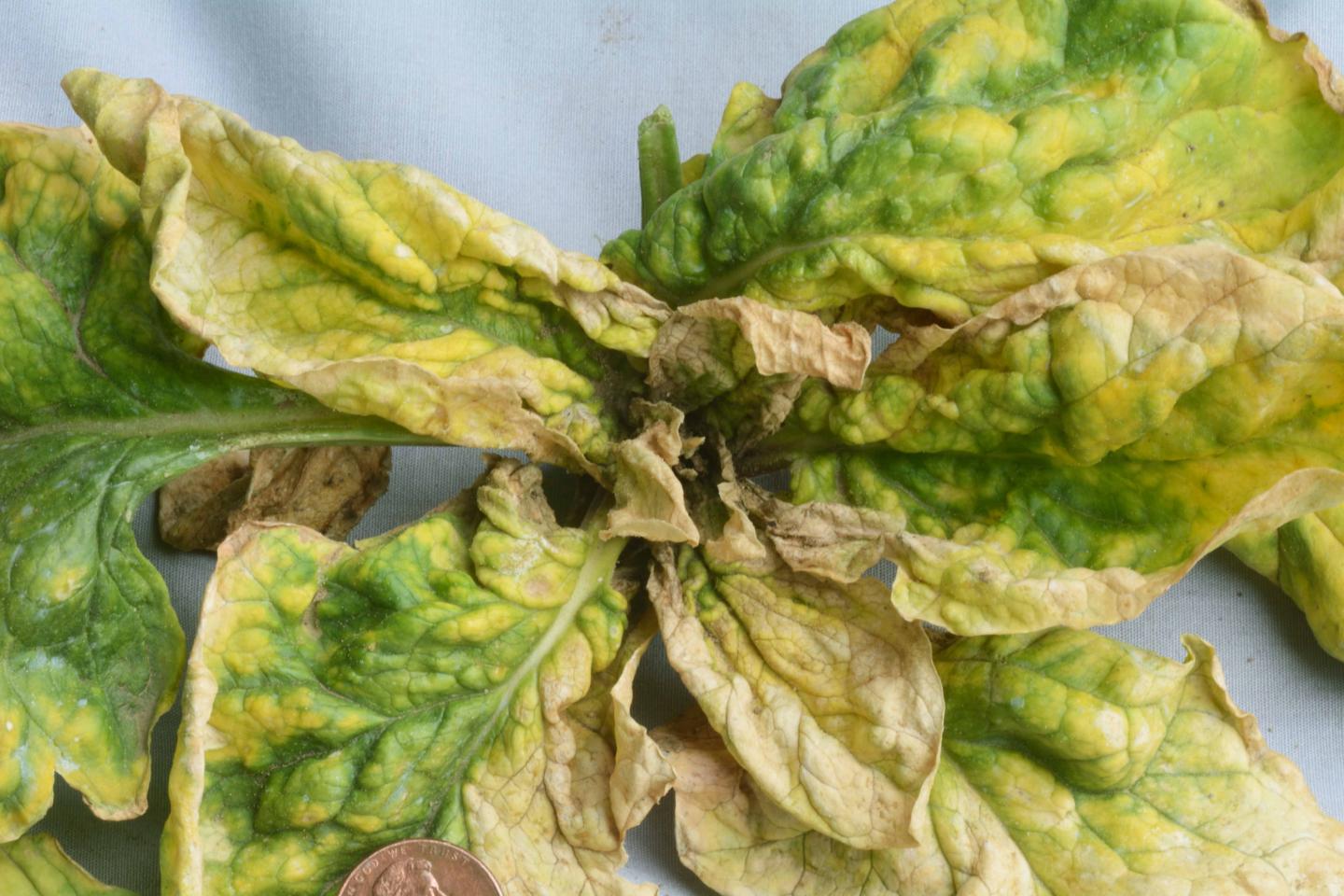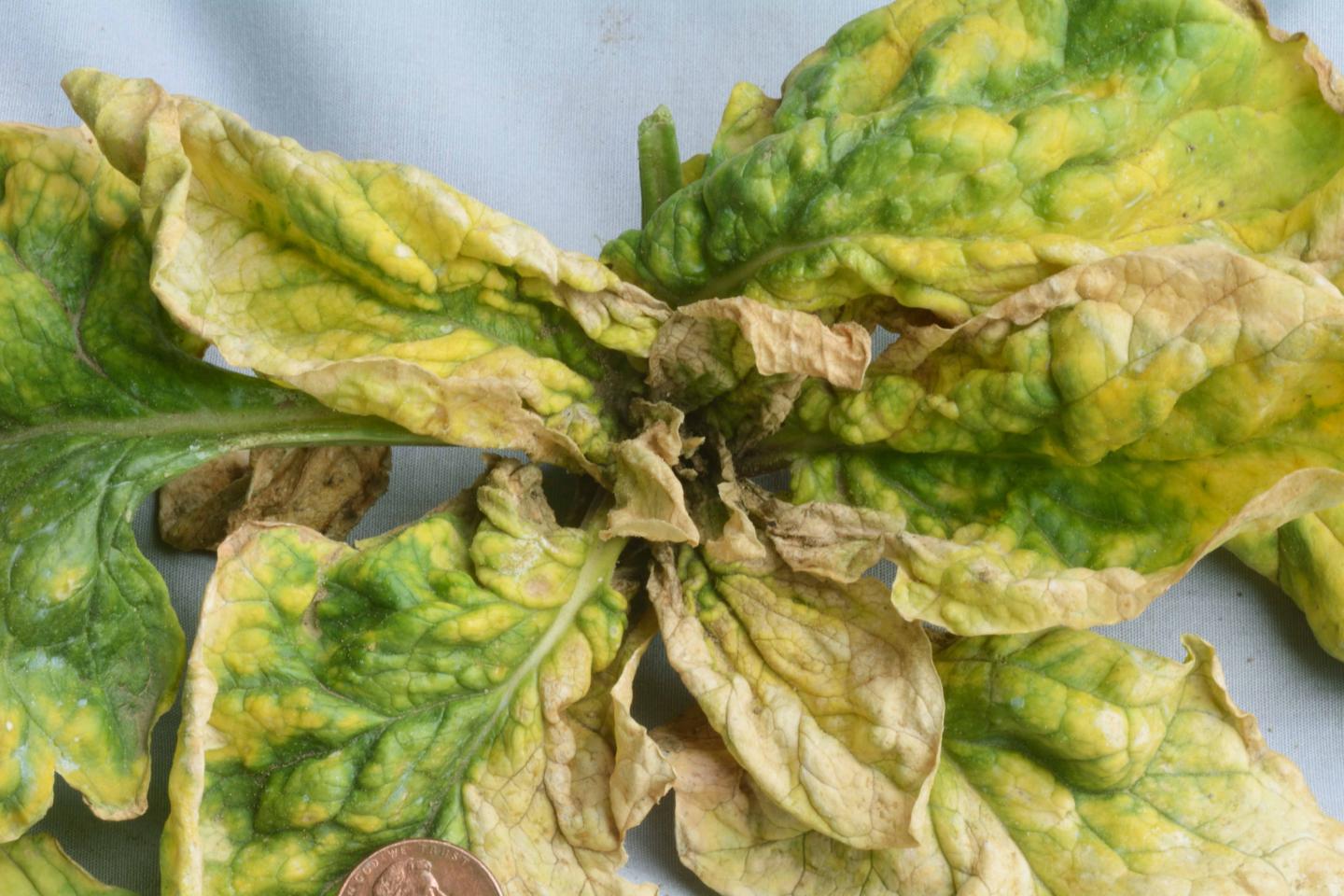
Credit: UCANR
RIVERSIDE, Calif. (http://www.ucr.edu) — Findings by a team of scientists, including two from the University of California, Riverside, could provide critical knowledge to attack deadly viruses transmitted by arthropods such as mosquitoes and aphids.
The scientists uncovered molecular mechanisms that the cucumber mosaic virus uses to manipulate plants to make them release odors that attract aphids, which transmit the virus. The work was published Jan. 6 in the journal Cell Research.
The cucumber mosaic virus, which is found worldwide, spreads rapidly and causes irreversible damage to plants, including many used in landscaping, and vegetable crops, such as tomatoes, peppers, lettuce, and cucumbers. The research could lead to more disease resistant vegetables and larger crop yields for farmers.
Shou-Wei Ding, a professor of plant pathology and microbiology at UC Riverside, has studied RNA viruses, such as cucumber mosaic virus, for more than 20 years. Much of that work has focused on understanding virus-host interactions.
Many important diseases in plants and humans are caused by pathogens, such as cucumber mosaic virus and Zika virus, which are transmitted by disease-carrying arthropods. The emergence and success of these pathogens are shaped by their molecular interactions with both the host and the arthropods.
The primary defense for plants against cucumber mosaic virus and other viruses is directed by RNA interference (RNAi). As a common counter-defense strategy, Ding previously found that a protein (known as the 2b protein) in the cucumber mosaic virus blocks a plant from launching antiviral RNA interference.
The current Cell Research paper builds on Ding's previous work and other studies that have found some pathogens can manipulate plants and animals to cause them to release odors that are attractive to the mosquitos and aphids that transmit the pathogen.
While that broader concept is understood, the molecular mechanism underlying this host manipulation has been unknown. In particular, the specific effectors the pathogens employ, and the pathways within the hosts they target, had been unknown.
The research outlined in the Cell Research paper provides answers to those questions.
The scientists found that the aphid-borne cucumber mosaic virus employs its 2b protein to suppress a specific hormone pathway in the plant, thus making aphid vectors more attracted to the infected plant. The hormone is known as jasmonic acid and is studied extensively by Daoxin Xie, a professor of Tsinghua University in China.
The findings represent the first time that a viral effector protein has been seen as attracting insect vectors to feed on plants through odor. The findings also represent the first time that a plant hormone has been uncovered as the major host factor to mediate the attraction of insect vectors to the infected plants.
These findings provide a novel strategy to control viral diseases by targeting either the viral effector protein or the host hormone required for attracting disease vectors to the infected host for virus transmission.
The paper is called "Viral effector protein manipulates host hormone signaling to attract insect vectors."
###
In addition to Ding and Xie, the authors are: Wan-Xiang Li, a staff research associate working with Ding; Dewei Wu, Tiancong Qi, Hua Gao, Jiaojiao Wang, Ruifeng Yao, Haixia Tian, Chunmei Ren, Yule Liu, and Xian-Bing Wang working with Xie; and Jin Ge working with Le Kang of the Chinese Academy of Sciences.
Media Contact
Sean Nealon
[email protected]
951-827-1287
@UCRiverside
http://www.ucr.edu
############
Story Source: Materials provided by Scienmag





